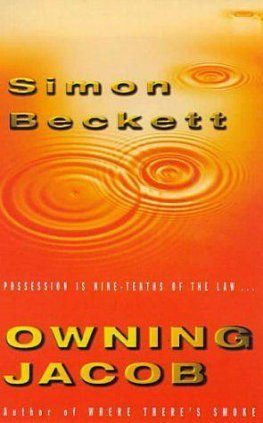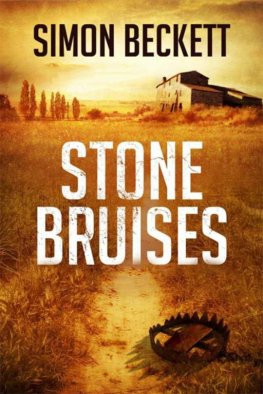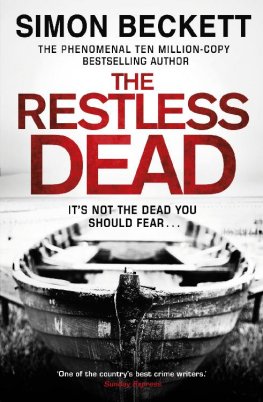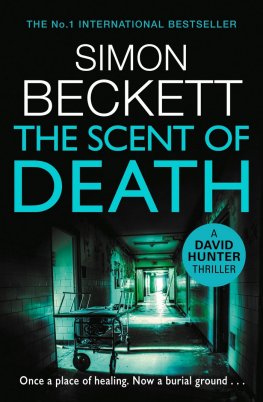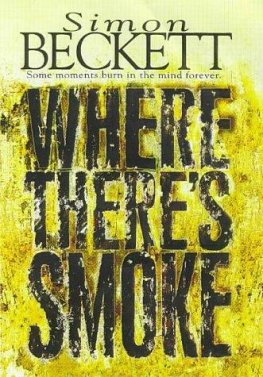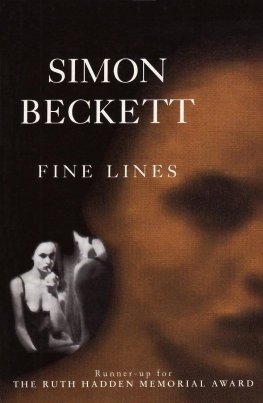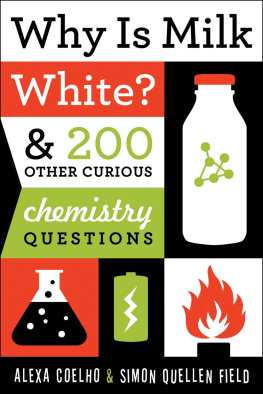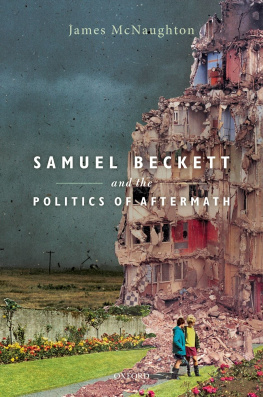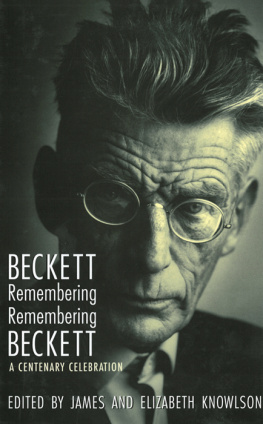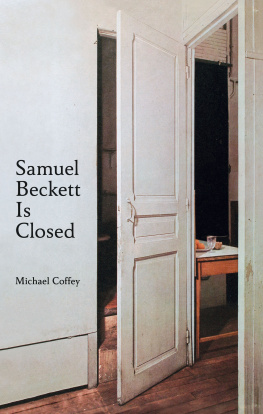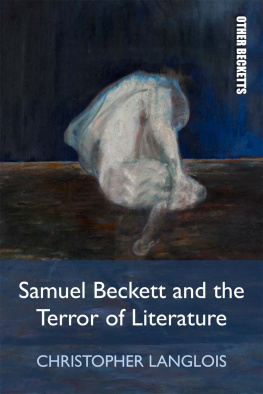Simon Beckett - The Chemistry of Death
Here you can read online Simon Beckett - The Chemistry of Death full text of the book (entire story) in english for free. Download pdf and epub, get meaning, cover and reviews about this ebook. genre: Detective and thriller. Description of the work, (preface) as well as reviews are available. Best literature library LitArk.com created for fans of good reading and offers a wide selection of genres:
Romance novel
Science fiction
Adventure
Detective
Science
History
Home and family
Prose
Art
Politics
Computer
Non-fiction
Religion
Business
Children
Humor
Choose a favorite category and find really read worthwhile books. Enjoy immersion in the world of imagination, feel the emotions of the characters or learn something new for yourself, make an fascinating discovery.

- Book:The Chemistry of Death
- Author:
- Genre:
- Rating:3 / 5
- Favourites:Add to favourites
- Your mark:
- 60
- 1
- 2
- 3
- 4
- 5
The Chemistry of Death: summary, description and annotation
We offer to read an annotation, description, summary or preface (depends on what the author of the book "The Chemistry of Death" wrote himself). If you haven't found the necessary information about the book — write in the comments, we will try to find it.
The Chemistry of Death — read online for free the complete book (whole text) full work
Below is the text of the book, divided by pages. System saving the place of the last page read, allows you to conveniently read the book "The Chemistry of Death" online for free, without having to search again every time where you left off. Put a bookmark, and you can go to the page where you finished reading at any time.
Font size:
Interval:
Bookmark:
The Chemistry of Death
Simon Beckett
1
A human body starts to decompose four minutes after death. Once the encapsulation of life, it now undergoes its final metamorphoses. It begins to digest itself. Cells dissolve from the inside out. Tissue turns to liquid, then to gas. No longer animate, the body becomes an immovable feast for other organisms. Bacteria first, then insects. Flies. Eggs are laid, then hatch. The larvae feed on the nutrient-rich broth, and then migrate. They leave the body in orderly fashion, following each other in a neat procession that always heads south. South-east or south-west sometimes, but never north. No-one knows why.
By now the body's muscle protein has broken down, producing a potent chemical brew. Lethal to vegetation, it kills the grass as the larvae crawl through it, forming an umbilical of death that extends back the way they came. In the right conditions dry and hot, say, without rain it can extend for yards, a wavering brown conga-line of fat yellow grubs. It's a curious sight, and for the curious what could be more natural than to follow this phenomenon back to its source? Which was how the Yates boys found what was left of Sally Palmer.
Neil and Sam came across the maggot trail on the edge of Farnham Wood, where it borders the marsh. It was the second week of July, and already the unnatural summer seemed to have been going on for ever. The heat seemed eternal, leaching the colour from the trees and baking the ground to the hardness of bone. The boys were on their way to Willow Hole, a reed pond that passed as the local swimming pool. They were meeting friends there, and would spend the Sunday afternoon bombing into the tepid green water from an overhanging tree. At least, so they thought.
I see them as bored and listless, drugged by the heat and impatient with each other. Neil, at eleven three years older than his brother, would be walking slightly ahead of Sam to demonstrate his impatience. There's a stick in his hand, with which he whips the stalks and branches he passes. Sam trudges along behind, sniffing from time to time. Not from a summer cold, but from the hay fever that also reddens his eyes. A mild antihistamine would help him, but at this stage he doesn't know that. He always sniffs during summer. Always the shadow to his bigger brother, he walks with his head down, which is why he and not his brother notices the maggot trail.
He stops and examines it before shouting Neil back. Neil is reluctant, but Sam has obviously found something. He tries to act unimpressed, but the undulating line of maggots intrigues him just as much as it does his brother. The two of them crouch over the grubs, pushing dark hair out of similar faces and wrinkling their noses at the ammoniac smell. And though neither could later remember whose idea it was to see where they were coming from, I imagine it to be Neil's. Having walked past the maggots himself, he would be keen to assert his authority once more. So it's Neil who sets off first, heading towards the yellowed tufts of marsh grass from which the larvae are flowing, and leaving Sam to follow.
Did they notice the smell as they approached? Probably. It would be strong enough to cut through even Sam's blocked sinuses. And they probably knew what it was. No city boys, these, they would be familiar with the cycle of life and death. The flies, too, would have alerted them, a somnolent buzzing that seemed to fill the heat. But the body they discovered was not the sheep or deer, or even dog, they might have expected. Naked but unrecognizable in the sun, Sally Palmer was full of movement, a rippling infestation that boiled under her skin and erupted from mouth and nose, as well as the other less natural openings in her body. The maggots that spilled from her pooled on the ground before crawling away in the line that now stretched beyond the Yates boys.
I don't suppose it matters which one broke first, but I think it would be Neil. As ever, Sam would have taken his cue from his big brother, trying to keep up in a race that led them first home, then to the police station.
And then, finally, to me.
As well as a mild sedative, I also gave Sam antihistamine to help his hay fever. By this time, though, he wasn't the only one to have red eyes. Neil too was still shaken by their discovery, although now he was beginning to recover his juvenile poise. So it was he rather than Sam who told me what had happened, already starting to reduce the raw memory to a more acceptable form, a story to be told and retold. And later, when the tragic events of that preternaturally hot summer had run their course, years later Neil would be telling it still, forever identified as the one whose discovery had started it all.
But it hadn't. It was just that, until then, we had never realized what was living among us.
2
I came to Manham in the late afternoon of a wet March, three years earlier. I arrived in the train station little more than a small platform in the middle of nowhere to find a rainswept landscape that seemed as empty of human life as it was of contour. I stood with my suitcase and took in the surrounding scenery, barely noticing the rain that dripped down the back of my collar. Flat marshland and fens spread out around me, a linear topography broken only by patches of bare woodland as it stretched to the horizon.
It was my first time in the Broads, my first time in Norfolk. It was spectacularly unfamiliar. I took in the sweeping openness, breathed in the damp, cold air, and felt something, minimally, begin to unwind. Unwelcoming as it might have been, it wasn't London, and that was enough.
There was no-one to meet me. I hadn't arranged any transport from the station. I hadn't planned that far ahead. I'd sold my car, along with everything else, and not given a thought to how I would get to the village. I still wasn't thinking too clearly, back then. If I'd thought about it at all, with the arrogance of a city-dweller I'd assumed there would be taxis, a shop, something. But there was no taxi rank, not even a phone box. I briefly regretted giving away my mobile, then picked up my suitcase and headed for the road. When I reached it there were just two options, left or right. Without hesitating I took the left. No reason. After a few hundred yards I came across a junction with a faded wooden road sign. It leaned to one side, so that it seemed to be pointing into the wet earth to some point underground. But at least it told me I was heading in the right direction.
The light was fading when I finally reached the village. One or two cars had passed as I'd walked, but none had stopped. Other than those, the first signs of life were a few farms set well back from the road, each isolated from the other. Then ahead of me in the half-light I saw the tower of a church, apparently half-buried in a field. There was a pavement now, narrow and slick with rain but better than the verge and hedgerows I'd been using since leaving the train station. Another bend in the road revealed the village itself, virtually hidden until you stumbled across it.
It wasn't quite a picture postcard. It was too lived in, too sprawling to fit the image of a rural English village. On the outskirts was a band of pre-war houses, but these soon gave way to stone cottages, their walls pebbled with chunks of flint. They grew progressively older as I drew nearer to the heart of the village, each step taking me further back in history. Varnished with drizzle, they huddled against each other, their lifeless windows reflecting back at me with blank suspicion.
After a while the road became lined with closed shops, behind which more houses ran off into the wet dusk. I passed a school, a pub, and then came to a village green. It was ablaze with daffodils, their yellow trumpets shockingly colourful in the sepia world as they nodded in the rain. Towering over the green, a gigantic old horse chestnut spread its bare black branches. Behind it, surrounded by a graveyard of canted, moss-covered stones, was the Norman church whose tower I'd seen from the road. Like the older cottages, its walls were encrusted with flint; hard, fist-sized stones that defied the elements. But the softer mortar surrounding them was weathered and worn by age, and the church windows and door had subtly warped as the ground it stood on had shifted over the centuries.
Font size:
Interval:
Bookmark:
Similar books «The Chemistry of Death»
Look at similar books to The Chemistry of Death. We have selected literature similar in name and meaning in the hope of providing readers with more options to find new, interesting, not yet read works.
Discussion, reviews of the book The Chemistry of Death and just readers' own opinions. Leave your comments, write what you think about the work, its meaning or the main characters. Specify what exactly you liked and what you didn't like, and why you think so.

